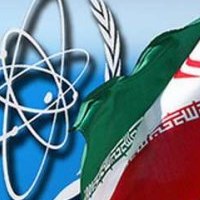![]()
Sun, Dec 04, 2011
Tehran dismisses Western threats to impose sanctions on import of oil from Iran
Originally published in the Meir Amit Intelligence and Terrorism Information Center’ bulletin 144.
This week Iran dismissed the threats increasingly made by European countries to impose new sanctions on its petroleum industry and cease importing Iranian oil. Last weekend the French Foreign Ministry announced that France called on its European partners to stop importing oil from Iran. A spokesman for the Italian Foreign Ministry also reported that Italy intends to stop importing crude oil from Iran.
In response to the statements, Deputy Petroleum Minister Ahmad Qalebani said in an interview given to Mehr News Agency that Iran’s national petroleum company does not export any crude oil to France, making France’s sanctions on the import of Iranian oil meaningless. He noted that, thanks to its oil and natural gas reserves, Iran enjoys an important position in the world energy market, and therefore cannot be ignored (Mehr, November 25). According to the U.S. Energy Information Administration (EIA), France imports approx. 49,000 barrels of Iranian oil per day, while Iran exports anywhere between 2 and 2.5 million barrels daily.
Deputy Economy Minister Behrouz Alishiri also commented on the threats made by the West to impose sanctions on the oil sector, saying that Iran has no problem attracting foreign investments into its oil industry. Speaking about an international investment conference held in Tehran last week, he noted that 60 percent of the investors who took part in the conference said they were willing to cooperate with directors of Iranian petroleum companies in oil, gas, and petrochemistry projects. In an interview given to ISNA News Agency, the deputy minister said that, during the conference, 10 foreign companies held talks with the directors of Iranian oil companies, and that before the conference Iran had already signed 3.4 billion dollars’ worth of contracts in two oil and petrochemistry projects (ISNA, November 26).
Seyyed Emad Hosseini, a spokesman for the Majles Energy Committee, also dismissed the possible effect of sanctions imposed by European countries on the Iranian oil sector. In an interview given to the Fararu website, Hosseini said that the Western threats to impose sanctions on the Iranian oil industry are nothing new, and that restrictions on foreign investments into the industry had already been imposed by the United States and Europe without causing any particular problems for Iran. He noted that any sanctions imposed by Europe on the oil market would have no real effect since most of Iran’s exports go to Asian countries, with European countries responsible for importing as little as 18 percent of all Iranian oil in the first six months of 2011. He went on to say that the world cannot ignore Iran’s major role in the production of oil and natural gas and the possible negative impact of sanctions against Iran on the global economy. According to Hosseini, Iran has proven itself unconcerned with sanctions and able to turn threats into opportunities (Fararu, November 26).
A commentary article published by the daily Tehran Emrouz said that the economic crisis currently gripping Europe has the continent’s leaders seriously concerned about a possible increase in energy prices in case sanctions are imposed on the Iranian oil sector. France, Britain, and Canada are the only countries that currently support such sanctions. The daily cited international media reports estimating that sanctions against Iran’s oil industry will exacerbate the economic crisis in the West. Also according to the daily, the World Bank warned about the consequences of imposing such sanctions for oil prices worldwide and the global economy. What is more, there is an agreement among the oil producing countries that they are unable to compensate for Iran’s oil production due to the large quantity the country exports daily. Such estimates are enough to keep the European authorities from imposing sanctions on the Iranian oil industry, Tehran Emrouz said (Tehran Emrouz, November 27).
The reformist daily Mardom Salari also argued that imposing sanctions on the import of oil from Iran is something that cannot be easily accomplished. An editorial published by the daily said that the European countries that support the sanctions are those that do not import oil from Iran, such as Germany and France, while those that do and are currently experiencing a severe economic crisis, including Italy, Spain, and Greece, have reservations about such measures.
The daily argued that, in the short term, no substitutes can be found for the oil produced by Iran, and that, at any rate, sanctions on the import of Iranian oil will not deal a blow to Iran’s oil revenues. Even if the quantity of oil that Iran can export is reduced, sanctions on the import of its oil will trigger a significant increase in oil prices, compensating the country for the drop in oil sales. Saying that Europe stands to lose the most from sanctions against the Iranian oil industry is not just a political slogan, Mardom Salari concluded (Mardom Salari, November 28).
Petroleum Minister Rostam Qasemi and Economy Minister Mehdi Ghazanfari said recently that if the West imposes sanctions on the import of oil from Iran, it is the world markets that will face the greatest threat. This week Qasemi stated once again that Western countries cannot ignore Iran’s status in the international oil market and the quality of the oil it produces, and that, at any rate, most of the Iranian oil is exported to East Asian countries (ISNA, November 27).



 RSS
RSS











Tehran dismisses Western threats to impose sanctions on import of oil from Iran | Middle East, Israe http://t.co/zqHWU8CZ
Tehran dismisses Western threats to impose sanctions on import of oil from Iran | Middle East, Israe http://t.co/zqHWU8CZ